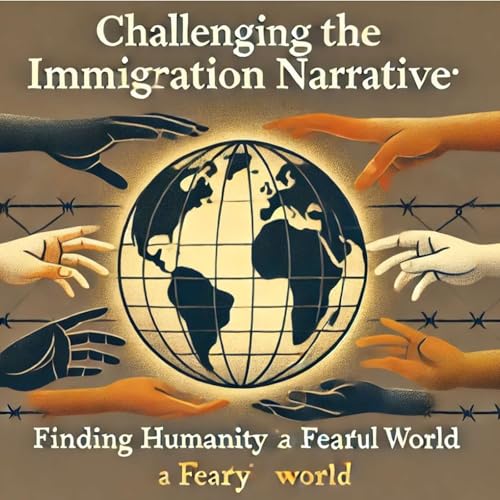
Challenging the Immigration Narrative: Finding Humanity in a Fearful World
No se pudo agregar al carrito
Add to Cart failed.
Error al Agregar a Lista de Deseos.
Error al eliminar de la lista de deseos.
Error al añadir a tu biblioteca
Error al seguir el podcast
Error al dejar de seguir el podcast
-
Narrado por:
-
De:
The world feels increasingly divided. Headlines scream of violence abroad and anti-immigration protests at home. Social media bombards us with reasons to fear those who don't look or sound like us. But are things really worse than they've ever been?
Taking a deep dive into historical data reveals something surprising - despite today's challenges, we're living in a relatively peaceful era compared to centuries past. The 13th century saw up to 17% of the global population perish during the Mongol conquests. The 20th century's world wars claimed hundreds of millions of lives. By comparison, our current troubles, while serious, affect a smaller percentage of humanity. What's changed dramatically is our awareness, with 24/7 news and social media creating an unprecedented window into global suffering.
This constant exposure shapes our perception, particularly around immigration. Yet throughout history, moments of profound humanity have emerged even amid bitter conflict. During World War I at Gallipoli, enemy soldiers temporarily ceased fighting to collect their dead, and unexpectedly shared cigarettes and stories in no-man's land. The Christmas Truce of 1914 saw British and German soldiers playing football together between trenches. These moments remind us that beneath our tribal instincts lies a capacity for connection.
My own experience after 9/11, when I found myself eyeing Middle Eastern passengers with suspicion despite having Middle Eastern friends, taught me how easily we dehumanize "others" by category. Australia's renowned wine industry exists because of French and German immigrants. Our celebrated coffee culture and essential healthcare services thrive because of multicultural contributions. When we look beyond categories to see individuals, our fear transforms into appreciation.
Next time you hear generalizations about immigrants or other groups, remember that behind each label are individuals with the same fundamental desires as you - safety, connection, opportunity. In a world that profits from our divisions, recognizing our shared humanity might be the most radical act of all.



